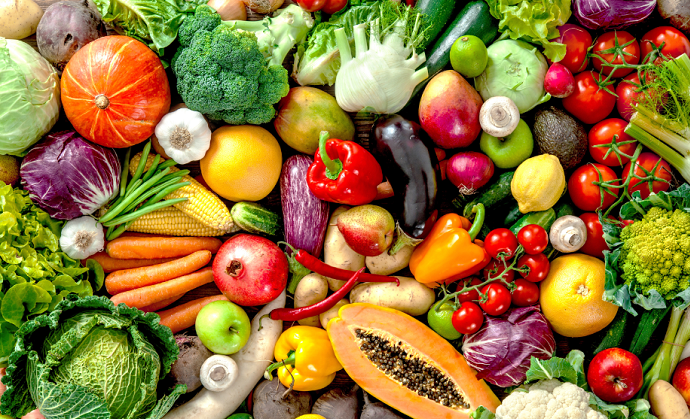Vegetarianism and "green" living are gradually becoming a new trend in modern lifestyle. However, not everyone has enough understanding and perseverance to follow a vegetarian diet that is nutritious and good for health.

Eating vegetarian properly brings many health benefits - Illustration photo
MSc. Pham Thi Lan Phuong, Department of Nutrition (Viet Duc Friendship Hospital) said that a vegetarian diet does not include meat, including poultry, seafood or products containing these foods.
Vegetarians who eat only plant-based foods are called vegetarians or vegans. However, many vegetarians also eat eggs, dairy products, or both eggs and dairy products.
The two most common definitions of vegetarianism below are veganism (which excludes all meat and animal-related foods) and ovo-lacto-vegetarianism (which excludes all meat but includes eggs, dairy products, or both).
Benefits of eating vegetarian properly
According to Dr. Phuong, a vegetarian diet brings health benefits, including reducing blood cholesterol levels, reducing the risk of high blood pressure, heart disease and type 2 diabetes.
Vegetarians tend to have lower body mass indexes and overall cancer rates than people who eat conventional diets.
Vegetarian diets are lower in saturated fat and cholesterol and higher in fiber, magnesium, potassium, folate, antioxidants (e.g. vitamins C and E), carotenoids, flavonoids, and other phytochemicals. These nutritional differences are the reason for the enhanced benefits of eating a balanced vegetarian diet.
Vegan and lacto-ovo vegetarian diets are considered healthy and nutritionally adequate when planned appropriately for different individuals.
Evidence-based analysis suggests that a properly designed vegetarian diet can provide adequate nutrition during pregnancy and may result in positive birth outcomes.
However, due to differences in dietary practices among vegetarians, individual dietary planning is necessary.

Due to differences in dietary practices among vegetarians, individual dietary planning is necessary - Illustration photo
How to plan a scientific vegetarian diet
Choose a variety of foods, including fruits, vegetables, whole grains, legumes, nuts, seeds, tofu or other soy products, and, if desired, dairy products and eggs.
Choose whole grain or unrefined products whenever possible, instead of refined products.
Minimize foods that are high in sugar, high in sodium (salt), or high in fat, especially saturated fat and trans fatty acids.
If you do consume animal foods such as dairy products and eggs, choose lower-fat dairy products.
According to health experts, although vegetarianism has been proven to bring many health benefits, it is important to pay attention to eating properly. Because if vegetarianism is not done properly, it can cause unpredictable harm to the body due to nutritional deficiencies.
Therefore, to be truly healthy, vegetarianism should be a scientific, varied and nutritious diet.
In addition, you must have a suitable exercise regimen, get enough sleep, do not smoke, limit alcohol and vegetarian foods high in sugar, salt, processed vegetarian foods, candies, soft drinks, etc.
You should consult your doctor or nutritionist to have a suitable diet according to your health condition. Children, pregnant women and breastfeeding women need to pay special attention when choosing a vegan diet.
Source: https://tuoitre.vn/chuyen-gia-chi-cach-lap-ke-hoach-an-chay-khoa-hoc-tot-cho-suc-khoe-20241118170612765.htm



![[Photo] Prime Minister Pham Minh Chinh chairs the conference to review the 2024-2025 school year and deploy tasks for the 2025-2026 school year.](https://vstatic.vietnam.vn/vietnam/resource/IMAGE/2025/8/22/2ca5ed79ce6a46a1ac7706a42cefafae)
![[Photo] President Luong Cuong receives delegation of the Youth Committee of the Liberal Democratic Party of Japan](https://vstatic.vietnam.vn/vietnam/resource/IMAGE/2025/8/22/2632d7f5cf4f4a8e90ce5f5e1989194a)


![[Photo] President Luong Cuong attends special political-artistic television show "Golden Opportunity"](https://vstatic.vietnam.vn/vietnam/resource/IMAGE/2025/8/22/44ca13c28fa7476796f9aa3618ff74c4)






























































































Comment (0)